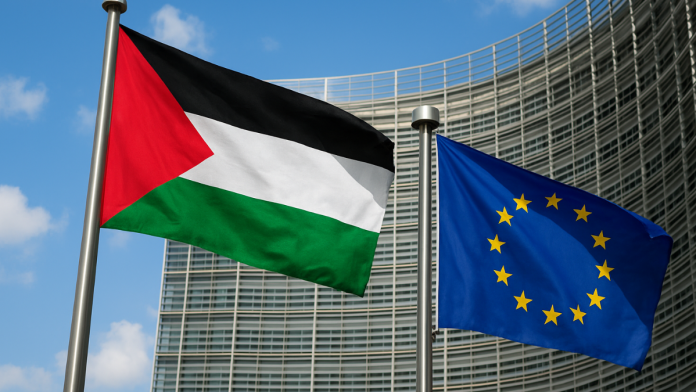The European Union’s plan to punish Israel with sanctions has been put on hold. Originally, the EU was considering strict measures such as blacklisting some Israeli government ministers, limiting trade with certain Israeli companies, and even pausing bilateral payments to the country. These actions were aimed at addressing concerns about human rights violations and violence in Gaza and the West Bank.
However, the recent peace deal brokered by U.S. President Donald Trump has changed the situation. The agreement, which aims to end the ongoing conflict between Israel and Hamas in Gaza, has made many EU countries reconsider whether sanctions are still necessary. With the announcement that the first phase of a ceasefire is in place, the urgency to take punitive measures has reduced.
EU officials have confirmed that discussions are still ongoing, but there is no consensus yet. The European Commission has stated that the sanctions were proposed in a specific context, and since the situation has evolved, the plan is now uncertain. While the Commission is not formally withdrawing the proposal, the chance of sanctions being implemented soon appears low.
EU struggles with internal divisions
One of the biggest challenges for the EU is that all 27 member states must agree to impose sanctions. Some countries are firmly opposed. Germany and Hungary, for example, have consistently resisted the idea, citing concerns about diplomatic relations and regional stability. On the other hand, countries like Belgium have pushed for stronger action against Israel, criticizing the long delay in presenting measures and questioning the EU’s credibility in foreign policy.
This division makes it difficult to move forward. Even though there is broad political agreement on the need to address human rights concerns and limit violence, practical disagreements are holding up decisions. Some smaller trade restrictions could still be introduced by a smaller group of countries, but that too now seems unlikely given the new peace deal.
Belgium supports peace deal in Gaza while maintaining sanctions on Israel
Criticism over EU’s slow response
The delay in taking action has drawn sharp criticism from both citizens and diplomats across Europe. Many people are puzzled and frustrated, questioning why the EU, known as a major player on the global stage, seems unable to make clear and timely decisions in a conflict as serious as the one in Gaza. Observers note that the lack of a swift response undermines the EU’s credibility and makes it appear indecisive in the eyes of the international community.
Officials from countries that have been pushing for stronger measures against Israel have described the EU’s slow pace as “regrettable.” They argue that failing to act promptly sends the wrong message to countries involved in human rights violations, potentially emboldening them to continue harmful practices. Moreover, diplomats warn that this hesitation could weaken the EU’s overall reputation as a global mediator and protector of international law, casting doubt on its ability to influence major crises in the future.
For many, the prolonged inaction raises questions about the effectiveness of EU institutions and the capacity of its member states to agree on pressing foreign policy matters.
How a Soviet spy Avni infiltrated Israel’s diplomatic core and rattled its intelligence network
U.S.-brokered peace deal changes EU approach
The peace agreement facilitated by the United States has significantly changed the diplomatic landscape. Israel and Hamas have agreed on a ceasefire and steps to address hostilities in Gaza. While full details of the plan are still being implemented, the announcement has already caused EU countries to rethink their approach.
European Commission representatives have acknowledged that the sanctions were proposed for a specific situation, and if that situation changes, the proposals may also need to change. Some member states still remain concerned about human rights issues, particularly regarding Israeli settlers in the West Bank, but most agree it is too soon to take aggressive action while the peace process is unfolding.
In practical terms, the EU is now in a waiting mode. The peace agreement provides a window for diplomacy, and the bloc is being cautious about acting in a way that could disrupt the fragile ceasefire. This shows how international agreements, like the U.S.-brokered deal, can quickly influence the positions of major organizations such as the European Union.


